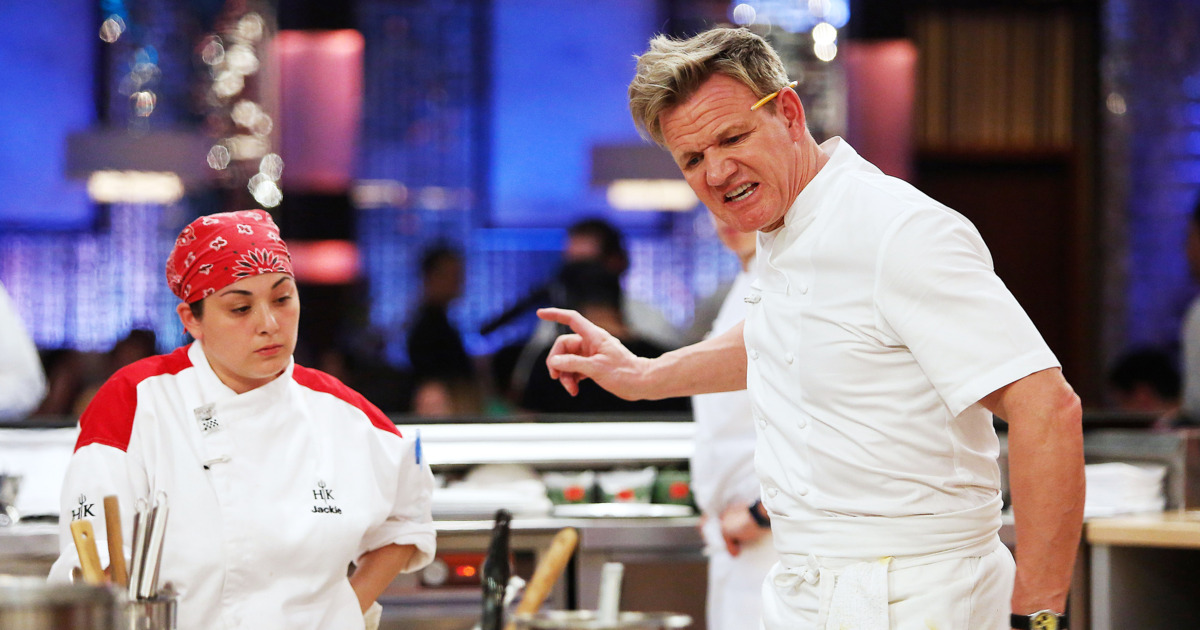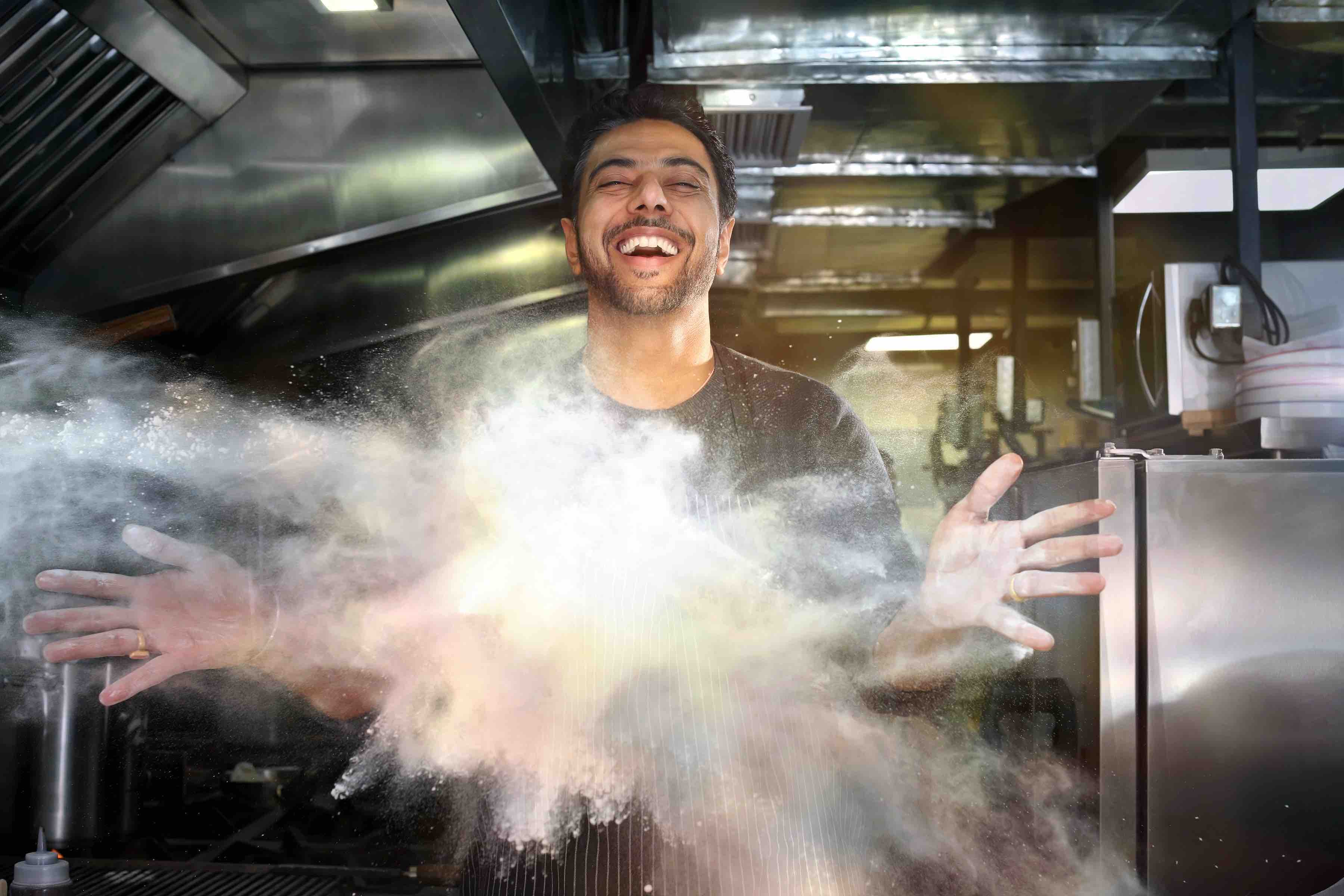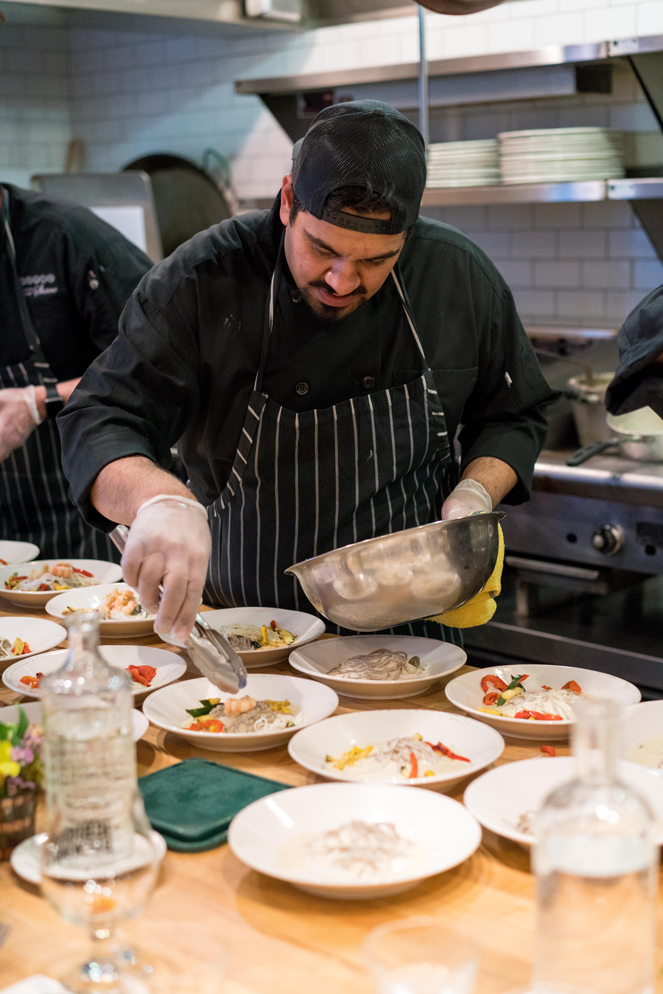Enough Yelling and Screaming: Restaurants Need Kindness in the Kitchen
I finally hit my breaking point. For months I’d been berated by senior chefs, screamed at over small details, and torn to shreds for every mistake. Then I made the cardinal sin of forgetting to remove an oxidized piece of foie gras from a dish — and the chef let me have it.
This time, I snapped.
I was crying, yelling, and cursing. I even broke a few plates. I knew it wasn’t professional but I couldn’t control my emotions after so much abuse. This business was tearing me apart and my bosses were driving me crazy.
Soon, I got over it and we all made up. I told myself that things get hectic in the difunctional restaurant industry and I had to toughen up. I could do this, I just needed thicker skin.
Eventually, I’d become an executive chef, running kitchens at some of the busiest restaurants in New York, Philadelphia, and the Bahamas. One time, I told a brand-new cook to wipe down his station. He said “it’s clean enough” then turned his back on me to keep working. I felt immediate disrespect — even if it was just in my head. I’d given him an order and he didn’t follow it. When I was younger, I’d been reamed out for insubordinations far less than this one. My staff looked around nervously. How would Chaz get this guy in line? I grabbed some eggs from the fridge and began cracking them all over his work station. On his grill, on his cutting board — even on his apron. “Is your station clean now?” I steamed.
Looking back years later, I’m disgusted by my actions. I handled that situation — and many others like it — poorly. I hated when chefs yelled at me when I was a junior staff member — why was I acting the same way when I got power? From that day on, I changed my ways.
Bullying and abuse is running rampant in the restaurant industry. Foodservice workers witness exclusion, verbal abuse, sexual intimidation, inappropriate jokes, teasing, and mean pranks significantly more frequently than non-foodservice hospitality workers, according to a recent study in the Journal of Foodservice Business Research. Meanwhile, the International Journal of Contemporary Hospitality Management reported that 74% of people in the hospitality industry have experienced bullying on the job. That’s three out of four people!

The restaurant industry needs a sweeping change. Enough yelling. Enough screaming. Enough belittling. We need to promote respectful work environments where people are praised for asking questions and empowered to test their culinary creativity. Work should be a collaborative place where people are treated with respect, not dressed down in front of their co-workers on a regular basis. I am calling on all my fellow chefs to stop the anger and bullying that’s plaguing our industry. It’s time to bring kindness to the kitchen.
It’s not only the right thing to do, it makes great business sense. Gallup recently found that engaged teams have up to 59% less turnover, 10% higher customer ratings, 21% greater profitability, 17% higher productivity, 70% fewer safety incidents and 41% less absenteeism. Getting people to stay longer and perform at optimal levels starts with leadership — and chefs have the ability to foster collaborative, encouraging work environments.
Outside of the military, there’s no job where yelling and screaming is expected. Imagine working at an office job and your boss screams over the cubicle wall every time you make a tiny mistake. It would be called workplace harassment in any other industry, but in restaurants it’s normalized.
Working in a kitchen is incredibly demanding. You get burned. You get cut. There’s constant pressure. Amidst all that noise and chaos, the chef must be the calm in the storm. They have to use reason — not yelling — to get their point across. If they can’t do that, they should find another job.
Many chefs went through the school of hard knocks to get in their positions. While friends chose college and cushy office jobs, chefs worked nights and weekends in steaming hot conditions for maniac bosses. They worked their asses off and now they’ve got a chip on their shoulders. I respect that. But taking that out on your staff perpetuates bad behavior. One day they’ll be the bosses, and the cycle will simply continue.
I encourage chefs to stop caring only about the plate. Care about the people. Nurture them. Bring them up. Turn your cooks into chefs.
You can be kind to people but still command respect — even in a kitchen. It’s World Kindness Day after all, so here are some actionable ways to bring kindness into the kitchen and stop the anger once and for all.

Don’t be a jerk. It seems obvious but in the restaurant industry, being a jerk is far too common. It’s time we break that mold. Instead of calling someone a moron for making a mistake, show them what they did wrong and encourage them to improve. A little positivity goes a long way.
Have empathy. There are a lot of broken people in this industry. There are immigrants who’ve gone through hell to get to this country. There are ex-addicts that have done the hard work of getting sober. There are misfits who’ve been abused and need healing. They don’t need a boss yelling in their face, they need empathy, kindness, and inspiration to do their best work.
Be self-deprecating. I encourage my staff to make fun of me in the kitchen. It shows that I’m anything but a drill sergeant, keeps my team laughing and helps everyone let their guard down and relax.
Have their back. I’ve worked with people who were down on their luck. I once gave a cook a $500 loan because he couldn’t pay his rent. I saw that another cook was struggling with mental health issues, so I made sure we hung out on off hours. Remember, chefs are a bunch of misfits and ragamuffins and this is their new family. If you’re gonna be patriarch or matriarch of that family, you’ve got to have your people’s backs.
Encourage their progress. In football, legendary coaches have what they call a “coaching tree.” People like Bill Parcells have developed countless former assistant coaches into Super Bowl and National Championship winners. Chefs can do the same thing. I want my people eventually running great restaurants. I want to leave a legacy of chefs who innovate the food scene and become terrific bosses themselves. If I yell and scream, they’ll yell and scream — or worse, they’ll quit the industry and waste their incredible talents.
Stage cooking competitions. I love hosting chef battles after hours. I do it just like TV, giving them a secret ingredient, putting 60 minutes on the clock, and getting three “judges” to determine a winner. My people got to show off their unique cooking styles, and earn the respect of their peers in a fun atmosphere. That kind of team building goes a long way.
Encourage continuous learning. When you’re green, you grow, when you’re ripe you rot. Too often, a kitchen is an environment where people are not encouraged to ask questions. My kitchens are the opposite. I purposely keep a library of 200 cookbooks — complete with a checkout system — so my chefs can constantly learn about their craft and the history behind it.
Give people credit. It’s easy to be golden eagle on top of totem pole. But remember that your people are doing lots of hard work, so make sure you give them credit. If you’re interviewed in the newspaper, praise your staff. If someone does a particularly good job, tell management. It’s a small but powerful way to keep them engaged for the long haul.

Chaz Brown is a passionate chef devoted to his culinary craft and strives to always be creative and inventive in the kitchen. A graduate of the French Culinary Institute, Chaz Brown was credited as the Mid-Atlantic Chef of The Year in 2009. Chaz is a Co-founder of xtraCHEF.


